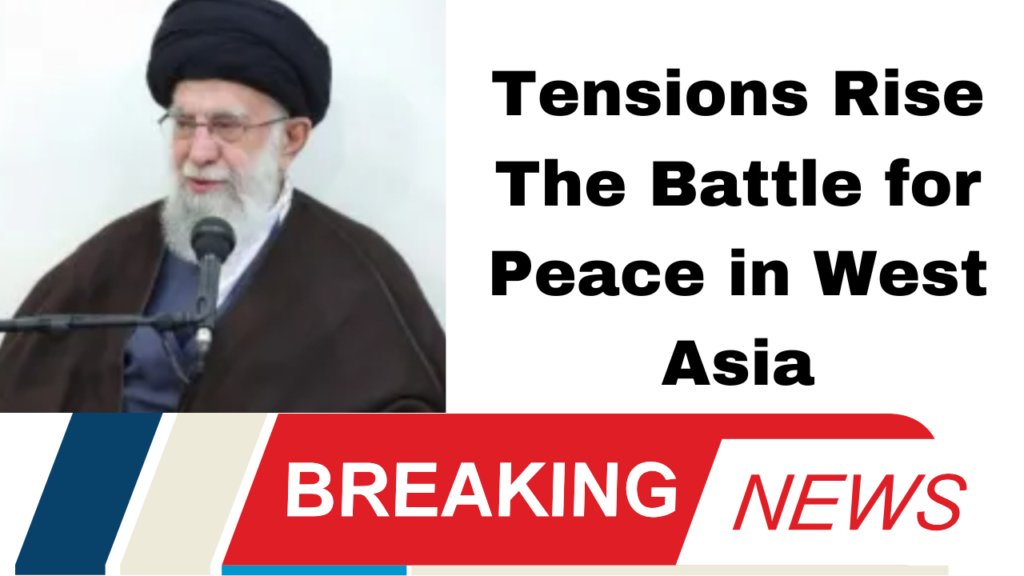In the wake of a significant escalation in tensions, Iran’s Supreme Leader Ayatollah Ali Khamenei has accused the United States and European nations of fueling conflict in West Asia. Following Iran’s missile attack on Israel on October 1, which involved over 200 ballistic missiles, Khamenei asserted that the withdrawal of these foreign powers is essential for achieving lasting peace in the region.
Khamenei’s Strong Statements Against Western Influence
Khamenei emphasized that the presence of the U.S. and European countries perpetuates unrest, claiming, “If these two parties get out of the way, then wars and conflicts will end.” He reiterated Iran’s long-standing position that Western nations support Israel, which he believes is a primary cause of instability in West Asia.
He expressed hope that, with divine assistance and the collective efforts of the Iranian people, along with support from allied nations, Iran would be able to expel foreign influence from the region. “We will remove our enemies from this region,” Khamenei stated, declaring, “The rule of the Zionists is over.”
Israel’s Vow for Retaliation
In response to the missile attack, Israeli Prime Minister Benjamin Netanyahu declared that Iran has made a grave mistake. He promised that the country would face consequences for its aggression. As both nations have now formally entered a state of war, the potential for a broader conflict looms large.
Experts warn that an escalation in hostilities between Israel and Iran could not only destabilize West Asia but also have far-reaching implications across the globe, raising concerns about the potential for a larger international conflict.
With both Iran and Israel gearing up for further confrontations, the prospect of lasting peace in West Asia appears increasingly remote. As tensions mount, the international community watches closely, aware that the ramifications of this conflict could extend wellbeyond the region.
